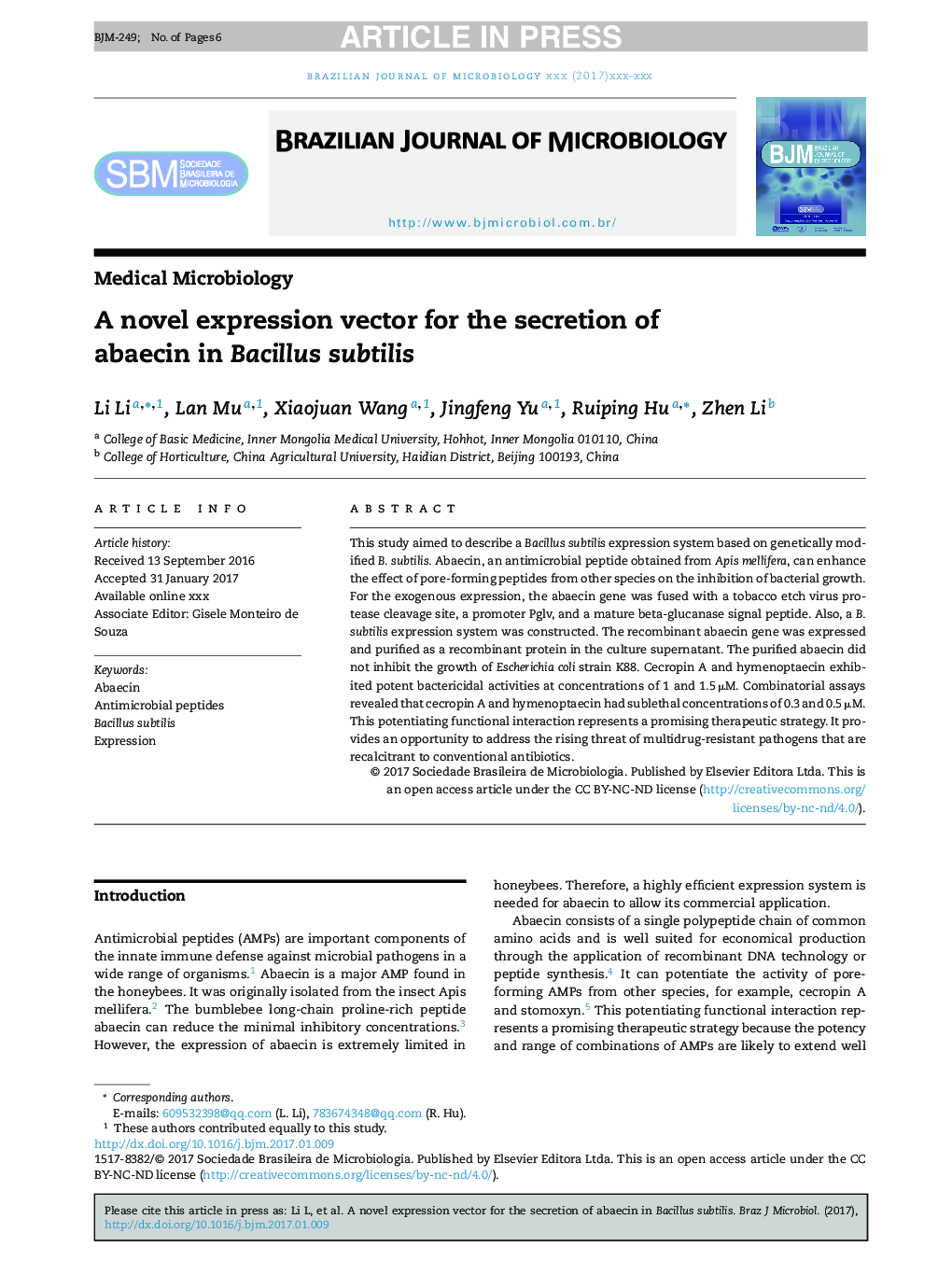| Article ID | Journal | Published Year | Pages | File Type |
|---|---|---|---|---|
| 8842586 | Brazilian Journal of Microbiology | 2017 | 6 Pages |
Abstract
This study aimed to describe a Bacillus subtilis expression system based on genetically modified B. subtilis. Abaecin, an antimicrobial peptide obtained from Apis mellifera, can enhance the effect of pore-forming peptides from other species on the inhibition of bacterial growth. For the exogenous expression, the abaecin gene was fused with a tobacco etch virus protease cleavage site, a promoter Pglv, and a mature beta-glucanase signal peptide. Also, a B. subtilis expression system was constructed. The recombinant abaecin gene was expressed and purified as a recombinant protein in the culture supernatant. The purified abaecin did not inhibit the growth of Escherichia coli strain K88. Cecropin A and hymenoptaecin exhibited potent bactericidal activities at concentrations of 1 and 1.5 μM. Combinatorial assays revealed that cecropin A and hymenoptaecin had sublethal concentrations of 0.3 and 0.5 μM. This potentiating functional interaction represents a promising therapeutic strategy. It provides an opportunity to address the rising threat of multidrug-resistant pathogens that are recalcitrant to conventional antibiotics.
Related Topics
Life Sciences
Immunology and Microbiology
Applied Microbiology and Biotechnology
Authors
Li Li, Lan Mu, Xiaojuan Wang, Jingfeng Yu, Ruiping Hu, Zhen Li,
